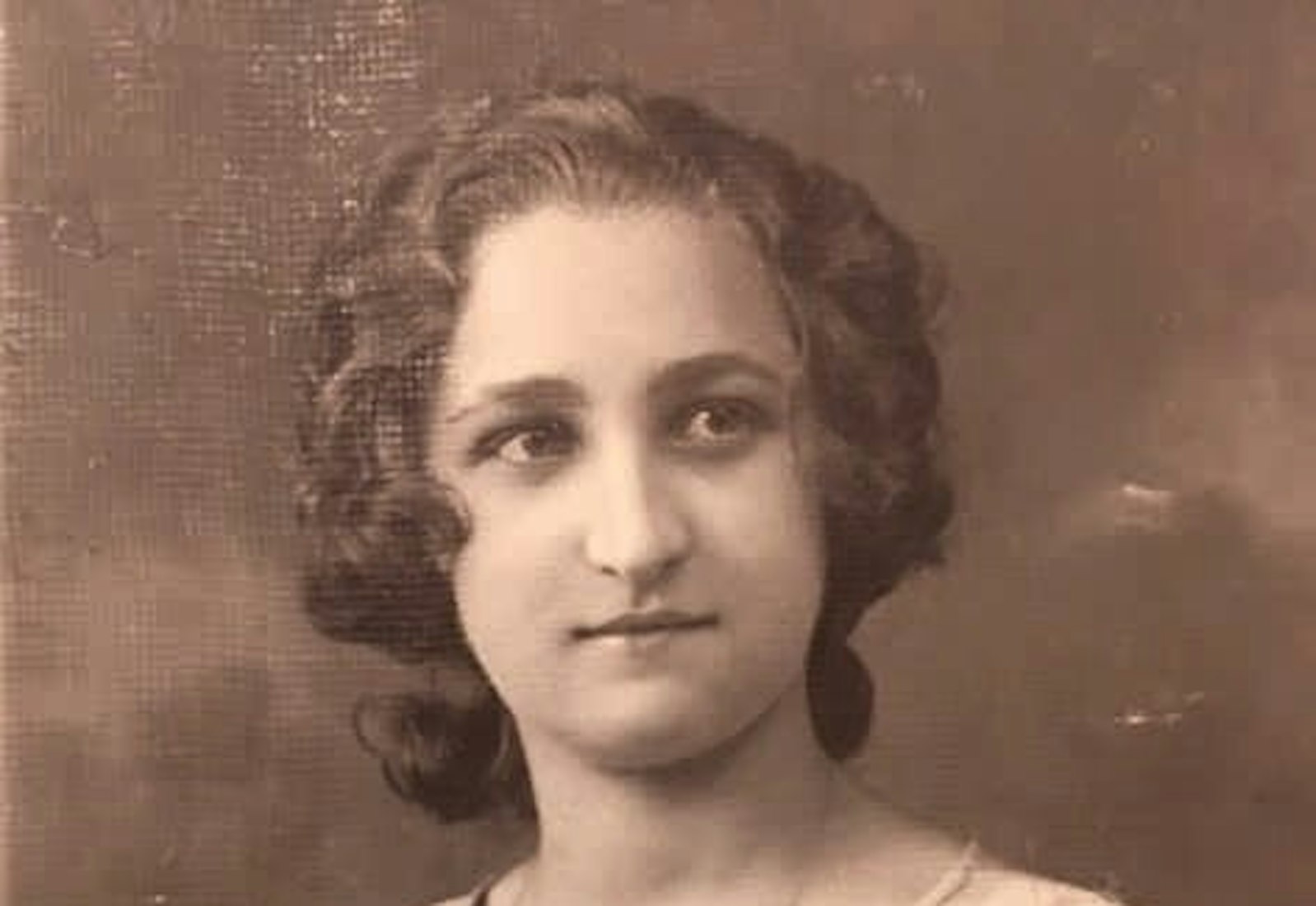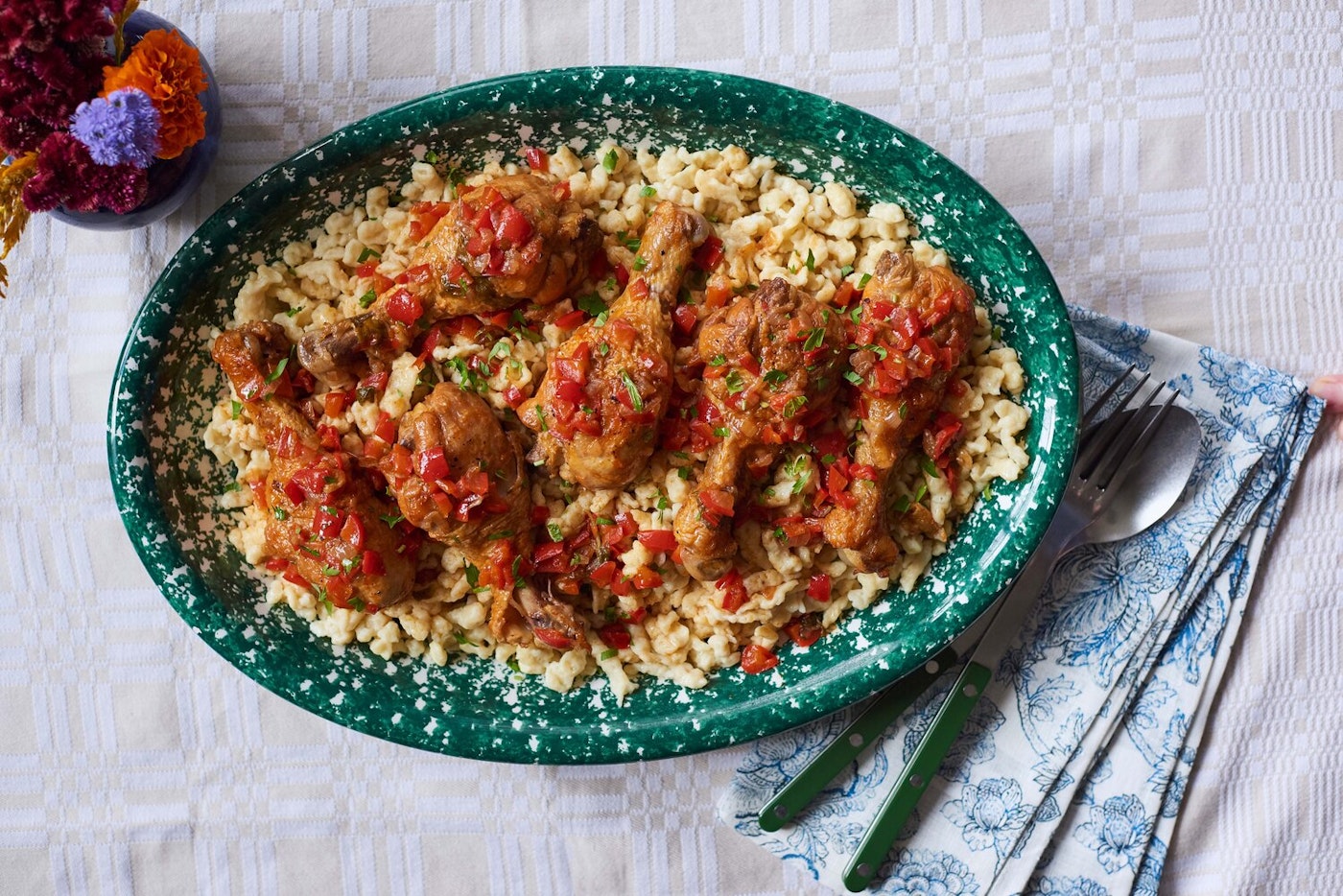Shared by Alex Sternberg

“Looking back, no dinner was complete without Auschwitz appearing on the menu. I digested my meals together with the stories of my parents’ painful memories,” Alex Sternberg writes in "Recipes from Auschwitz." There were meals of goulash, vegetable soup, chicken paprikash, spaetzle, stuffed cabbage, sour cherry soup, and other classics from Hungary.
It wasn’t just the stories of Auschwitz and other camps where his parents Olga and Marton were sent during the war that appeared on the table. It was the recipes themselves that came from the camps. In Auschwitz-Birkenau and Ravensbrück, a women’s concentration camp where Olga was sent, women would “cook” together. Cooking here was not a physical act, rather it was one of recollection and storytelling.
“They would take turns describing how they had prepared their favorite dishes before the war. They would describe their kitchens and the fine linen and china they would set upon the table. Then they would describe their families who would eat these scrumptious meals—family members they had been separated from and perhaps with whom they would never be reunited,” Alex writes. The cooking sessions sustained Olga and the women she lived with.
A well educated woman, Olga was accustomed to memorizing poetry in Latin, Hungarian, and Greek. She committed to memory the recipes of the women she cooked with as well. Before the war, she hadn’t cooked much. It was in the camps that she learned to “cook.”
After the war, Olga returned to her hometown of Dombóvár in the south of Hungary and stayed in contact with two sisters she grew close to in Ravensbruck. One of the sisters invited Olga to visit her in Pápa, in northwestern Hungary, to introduce her to Marton, a devoutly religious Jew and a widower. Olga wasn’t raised in a religious home, but as she and Marton dated and ultimately married, she became religiously observant. Shabbat dinners were a staple in the home they created. “I fondly remember those Shabbos meals while I was growing up,” Alex writes. “My mother served her delicious dinners, cooked with the recipes she had learned in Auschwitz.”
The recipes followed the family when they moved to New York in 1961 escaping Communism and anti-Semitism. They were prepared in Boro Park where the family lived for a time and later in Canarsie where Marton bought a house. It wasn’t until nearly 30 years later that the recipes were passed down to Alex when he got divorced. He gained custody of his son and his mother felt he needed to learn to cook.
This year, another 30 years later, on the anniversary of Olga’s passing, or yahrzeit, the recipes were passed to the next generation. Unable to gather a minyan (a Jewish quorum) to recite the mourner’s Kaddish, Alex gathered his family and his brothers’ family on Zoom. Everyone had cooked one of Olga’s recipes from Alex’s book — and many of Alex’s nieces and nephews have continued to make the dishes since, keeping Olga’s memory alive.
